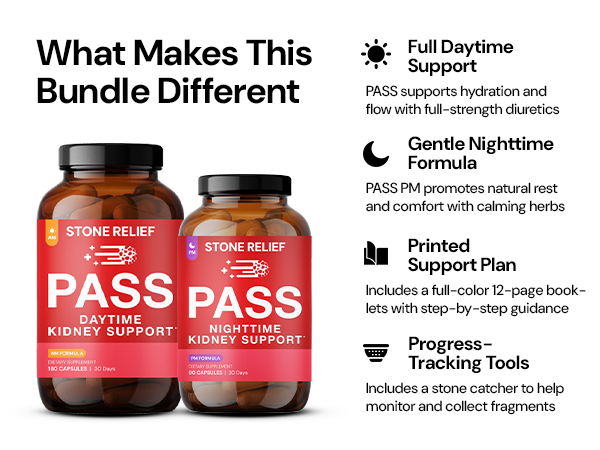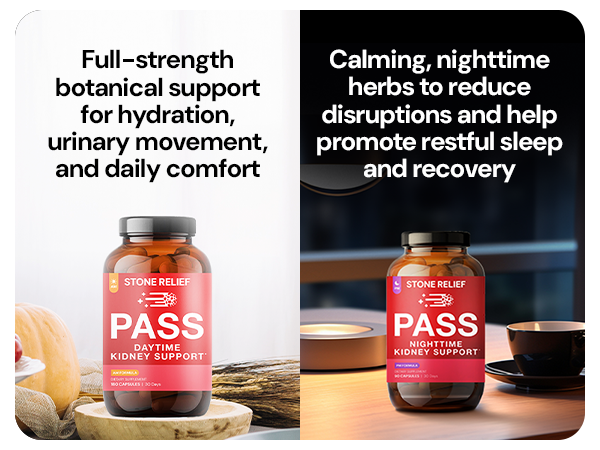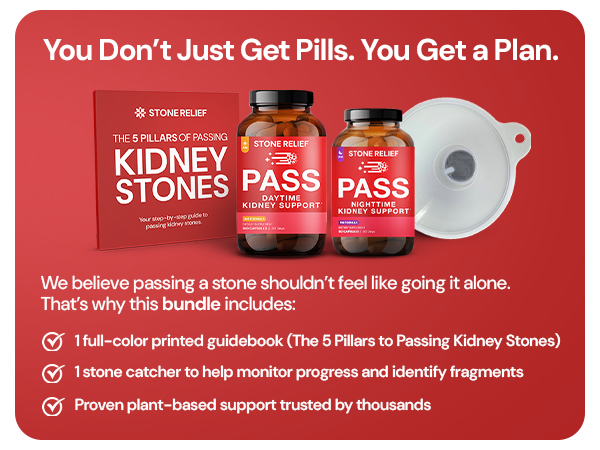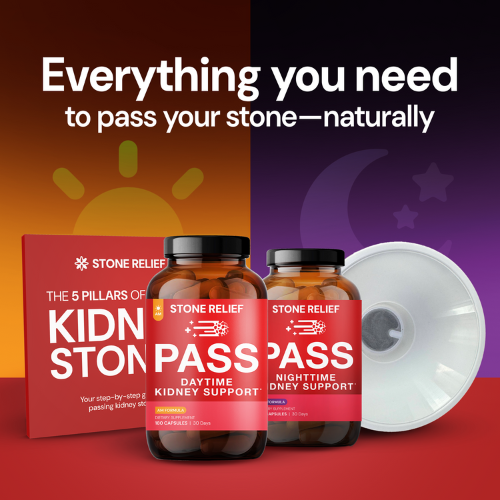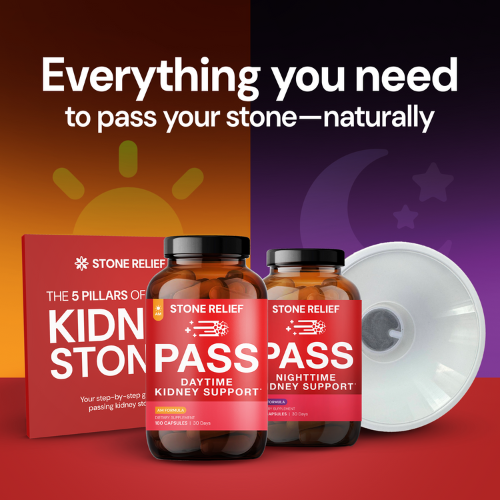How Magnesium Prevents Kidney Stones Naturally
Magnesium plays a powerful yet often overlooked role in preventing kidney stones—especially the most common kind, calcium oxalate stones. But the problem is, most people are dangerously deficient in it. In this blog, Joey Weichmann breaks down why magnesium matters, how it works, and where to get it for optimal kidney health.
Main Points:
-
Magnesium is essential for kidney stone prevention, especially calcium oxalate stones.
-
Most Western diets are critically deficient in magnesium.
-
Magnesium binds with oxalate to reduce stone formation.
-
Only certain bioavailable sources of magnesium are effective.
If you've ever had a kidney stone, you know the pain is unforgettable—and so is the desperate search for a way to stop it from happening again.
You're likely familiar with citrate as a stone-preventing superstar. But there’s another mineral that plays a critical, yet lesser-known, protective role: magnesium.
And most people?
They’re dangerously low on it.

Why Magnesium Matters for Kidney Stone Prevention
Let’s start with the basics. Magnesium is an essential nutrient, meaning your body can't make it on its own. You mustget it from your diet. This becomes crucial when we talk about sourcing, because not all magnesium is created equal.
The recommended daily allowance (RDA) for magnesium is 400 mg for men and 350 mg for women. While this might seem achievable, most people in Western countries don’t come anywhere close to these numbers.
The result?
A massive, widespread deficiency.
And that has major implications for your kidney health.
🛒 Check Price & Purchase Stone Relief Pass AM/PM Bundle on Amazon
The Western Diet’s Magnesium Problem
Joey Weichmann—founder of Stone Relief and a former kidney stone sufferer—knows this problem firsthand. He spent years struggling with calcium oxalate stones before piecing together what actually worked to prevent them.
The culprit?
A diet low in magnesium and other key nutrients.
Today, over 20% of the global population suffers from kidney stones—up from just 7-9% a decade ago. That’s a huge spike. And poor diet is a big reason why.
As Joey points out, our food choices are stripped of vital minerals—especially magnesium. This sets the stage not just for kidney stones, but for other serious problems like:
• Irregular heartbeats
• Chronic inflammation
• Hormonal imbalances and stress overload
• Impaired kidney function
So, what makes magnesium so critical for kidney stone prevention?
How Magnesium Blocks Stone Formation
Here’s where things get interesting.
Magnesium has the ability to bind with oxalate, the chemical compound that teams up with calcium to form kidney stones—specifically calcium oxalate stones, which account for nearly 80% of all cases.
Even if you don’t know what type of stone you had, chances are—it was a calcium oxalate stone.
So let’s dig into what oxalate actually is.
Oxalate is a toxin found in all plants. It's a natural defense chemical that helps protect plants from being eaten. Some grasses have such high oxalate levels, they can actually kill animals as large as cattle. That’s how potent this compound can be.
When you eat high-oxalate foods, oxalate enters your body—but here’s the problem:
Your body doesn’t know what to do with it.
Unlike nutrients like calcium or sodium, which your body can absorb and distribute, oxalate confuses the system. It doesn't get digested like everything else. Instead, it lingers—waiting for something to bind to.
That’s where magnesium steps in.
🛒 Check Price & Purchase Stone Relief Pass AM/PM Bundle on Amazon
Magnesium’s Role in the Digestive Tract
Magnesium can bind with oxalate right in the digestive tract, before it ever makes its way to the kidneys. This is similar to how citrate works.
By catching oxalate early, magnesium neutralizes its stone-forming potential. This binding action stops oxalate from teaming up with calcium later on—breaking the cycle that causes stone formation in the first place.
This protective action makes magnesium a must-have for anyone trying to prevent calcium oxalate kidney stones.
Why Most Magnesium Supplements Don’t Work
But there’s a catch.
Not all magnesium is bioavailable. That means your body can’t absorb it effectively unless it comes from the right source.
Many magnesium supplements on the market are poorly absorbed or filled with fillers that provide little real benefit. If you’re relying on cheap drugstore brands, you’re probably not getting what you think you are.
That’s why sourcing matters so much. The quality and bioavailability of your magnesium source can make or break your prevention plan.
We’ll dive deeper into the best sources in part two of Joey’s series—but the big takeaway here is this:
Magnesium only works if your body can absorb it.
🛒 Check Price & Purchase Stone Relief Pass AM/PM Bundle on Amazon
The Bigger Picture: Diet and Deficiency
Kidney stone prevention isn’t just about adding one supplement. It’s about rethinking your diet and recognizing what’s missing.
Magnesium deficiency is only one piece of the puzzle—but it’s a major one. When paired with low-citrate intake, dehydration, and poor nutrient absorption, your body becomes the perfect environment for kidney stones to form.
The numbers don’t lie.
Kidney stone rates are climbing.
And diet-driven deficiencies are driving that growth.
Final Thoughts: Magnesium is Your First Line of Defense
If you're battling calcium oxalate kidney stones—or trying to stop your first one from forming—magnesium must be part of your strategy.
It’s essential, it’s powerful, and it works when it comes from the right source.
In part two, Joey will break down exactly which magnesium-rich foods and supplements offer the best absorption and support. But for now, just know this:
Magnesium is more than just a mineral—it's a shield against kidney stones.

